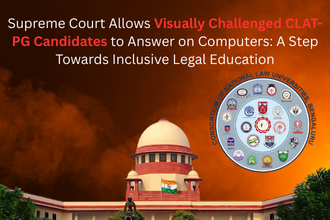The Supreme Court of India on 19 August 2025 issued significant directions concerning the management of the Maa Chandi Devi Temple Trust in Haridwar, Uttarakhand. The apex court has directed the District Collector of Haridwar to personally conduct an inquiry into the functioning and management of the temple trust, while maintaining the interim supervision of the Badrinath Kedarnath Temple Committee (BKTC) as ordered earlier by the Uttarakhand High Court.
This ruling, delivered by a Bench of Justices Ahsanuddin Amanullah and SVN Bhatti, aims to ensure transparent management of the historic temple and protect the interests of devotees until a permanent management structure is finalized.
Key Directions of the Supreme Court
- Inquiry by Haridwar Collector:
The Court has tasked the District Collector of Haridwar to conduct a personal inquiry into the affairs of the Maa Chandi Devi Temple Trust. The inquiry must include hearing all stakeholders, such as the BKTC, Mahant Rohit Giri, and other relevant parties. - Report to be Submitted to High Court:
The Collector is required to prepare a detailed report recommending a suitable interim management structure, which will then be examined by the Uttarakhand High Court. - Continuation of Interim Supervision by BKTC:
Until the Collector’s report is submitted and reviewed, the BKTC’s interim supervisory role will remain in force. The committee has already begun overseeing the temple’s affairs, and the Court refused to disturb this arrangement. - High Court’s Role:
The Supreme Court requested the High Court to adjourn the matter for six weeks to await the Collector’s report, implead additional stakeholders, and prioritize the case to ensure a final decision on permanent management. - Focus on Devotees’ Interests:
The Bench emphasized that the Collector must act in the best interests of the temple and its devotees, ensuring a broad-based inquiry into mismanagement allegations.
Background of the Dispute
The matter stems from petitions filed by Mahant Bhawani Nandan Giri challenging a June 25, 2025, order of the Uttarakhand High Court.
High Court’s Observations:
- The High Court had taken suo motu cognizance of mismanagement in the temple trust while hearing an anticipatory bail plea filed by the live-in partner of Mahant Rohit Giri.
- Allegations of blackmail, intimidation, and even molestation charges were levelled against Rohit Giri.
- The Court observed that it would be inappropriate to entrust the temple’s management to him given the pending criminal cases.
- Consequently, the High Court ordered the temple to function under the supervision of the BKTC, directed the appointment of a Receiver, and restrained both the petitioner and complainant from interfering in day-to-day affairs.
This decision was challenged before the Supreme Court on the limited issue of temple trust management, leading to the present ruling.
Importance of the Maa Chandi Devi Temple
The Maa Chandi Devi Temple is one of the most revered shrines in Haridwar, dedicated to Goddess Chandi, an incarnation of Goddess Parvati. Thousands of devotees visit the temple daily, especially during Navratri and Kanwar Yatra.
Given its religious significance and the large number of devotees, the management of the temple trust plays a crucial role in ensuring proper facilities, transparent accounting of donations, and safeguarding of temple traditions. Allegations of mismanagement and misuse of funds therefore become issues of public faith and accountability.
Supreme Court’s Approach
The ruling reflects the Court’s balanced approach:
- Maintaining Status Quo: By not disturbing the High Court’s interim order, the Court ensured that the temple continues to function smoothly without administrative vacuum.
- Ensuring Accountability: The directive to the Collector for a fresh, personal, and broad-based inquiry shows the Court’s intent to get to the root of mismanagement allegations.
- Judicial Prudence: Instead of itself deciding on permanent management, the Court entrusted the High Court with the task, respecting judicial hierarchy and localized oversight.
Implications of the Judgment
- Transparency in Temple Management:
The ruling could set a precedent for ensuring better governance of temple trusts, especially in cases where allegations of mismanagement surface. - Role of Statutory Committees like BKTC:
By allowing BKTC’s supervision, the judgment reinforces the role of statutory bodies in managing important temples, similar to how Tirumala Tirupati Devasthanams (TTD) oversees the Tirupati temple. - Devotees’ Confidence:
The Court’s emphasis on protecting the interests of devotees is likely to restore faith in judicial intervention where temple affairs are marred by disputes. - Scrutiny of Religious Trusts:
This case highlights how courts can intervene in the management of religious institutions when allegations of corruption, criminal charges, or maladministration are raised.
Legal Significance
The case is notable for several legal principles:
- Judicial Oversight of Religious Institutions: Courts have often stepped in to regulate temple administration, balancing Article 25 & 26 (freedom of religion and religious denominations) with the State’s power to regulate secular aspects of temple management.
- Public Interest Doctrine: The Court underscored that the best interests of devotees must guide any interim or permanent arrangement.
- Interim vs. Permanent Management: The decision distinguishes between temporary supervisory arrangements and final structural reforms, leaving the latter to the High Court after a fact-based inquiry.
Case Title and Citation
- Case Title: Mahant Bhawani Nandan Giri v. State of Uttarakhand & Anr. (and connected cases)
- Citation: 2025 LiveLaw (SC) 817
Conclusion
The Supreme Court’s directions in the Maa Chandi Devi Temple Trust case reaffirm the judiciary’s proactive role in ensuring transparency, accountability, and fairness in the management of religious institutions. By mandating a thorough inquiry by the Haridwar Collector and maintaining BKTC’s interim supervision, the Court has struck a careful balance between religious autonomy and public interest.
As the matter progresses before the Uttarakhand High Court, devotees and stakeholders await a permanent resolution that upholds the sanctity of the temple while ensuring professional and transparent governance. This ruling is likely to serve as a landmark in temple administration jurisprudence, influencing similar cases across the country.
Also Read


